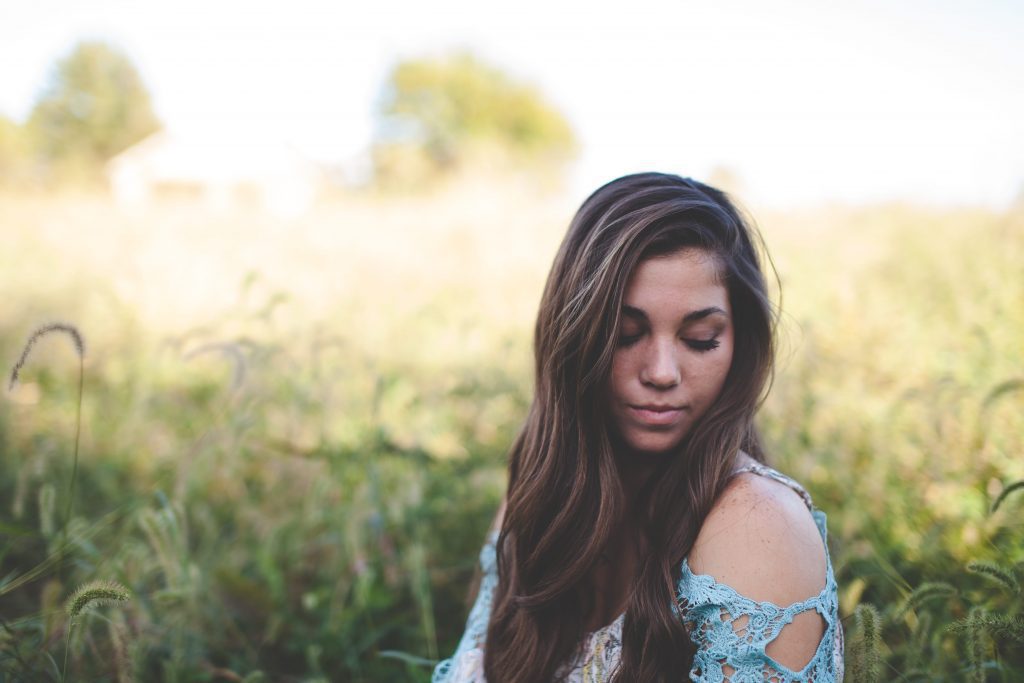As a child, I showed quite a few signs of mental illness. But I didn’t get the help I needed until I decided to take things into my own hands at the age of 26.
I grew tired of feeling anxious all the time and wanted a solution to the problem. In 2015, I received a diagnosis of generalized anxiety disorder. Now I often wonder how my parents could have missed the signs.
My symptoms started as a young child. I never fit in during my schooling years and got bullied a lot because I was so different. I knew I was different and other kids exploited that fact. The solution ended up being a psychiatrist and medication.
Every child with a mental health problem deserves help. I’m sharing my symptoms with you now in the hopes that parents and other family members do not miss these signs in other teens and children.
My social skills regressed as a young child due to bullying.
When I was growing up, I was a total pushover. Kids bullied me often because of it. They knew they could walk all over me and they didn’t think twice about doing so.
As a child, I wasn’t tall, standing head and shoulders below the rest of the class. Today, I stand at four feet, nine inches tall. I’m proud to say this, though I still get stares from people.
Because of the bullying and my anxiety disorder, I hardly spoke to anyone at all. I would always bite my tongue and didn’t know what to say to those who spoke to me kindly.
I got to a point where I wouldn’t speak unless spoken to first.
Kids bullied me because of my short stature and my body image. As a child, I was overweight and had self-confidence issues.
I won’t lie when I say that my self-esteem at that point was at an all-time low. I got to a point where I refused to speak unless someone called my name.
I didn’t want people to see me because I believed that they would bully me on sight. I wouldn’t speak in class either because I didn’t want to embarrass myself over being wrong.
I didn’t make friends like I used to.
I’m an introverted person by nature but my anxiety disorder made things worse. I didn’t make many friends because of the bullying. I didn’t know who to trust at school.
To this day, I don’t have many friends because of the anxiety disorder. I do not go out to social events because I was so nervous about the other people there.
Kids with anxiety and other mental health problems might push themselves away from others their age. They might not want to make friends like the extroverted children.
They realize they’re different from others and don’t want it known that they realize this. They don’t want to be bullied because they’re different.
I spent a lot of time in my room and didn’t invite friends over to play.
When I’d get home from school, I would remove myself from the world. I wouldn’t come out of my room until dinner and wouldn’t invite friends over to spend the night.
I invited a whopping total of 3 people over to the family home over the total of 21 years. I had one sleepover and went to six others over the years.
This all happened because of the bullying and the anxiety I dealt with every day. I could not relate to people and would thus not spend time near them.
I got nervous in public areas and didn’t know how to say what’s bothering me.
I have an anxiety disorder that makes public areas a no-no for me these days. I don’t like to be out in public due to fear of embarrassing myself. This is the definition of agoraphobia.
I also have claustrophobia, which is a fear of enclosed spaces. It always leads to feeling trapped in places like the local mall. I don’t go to the mall often and it’s not for long when I do go.
Children and teens with social anxiety disorder and autism feel the same way about being in public. There is too much stimuli around them and it is overwhelming.
There were times when I refused to let anyone touch me.
I have days when I hug people without thinking about it, while I turn my nose up at a hug on other days. I don’t know why I have this problem but it’s been like this for years.
My emotions would turn themselves off and I would step back from anyone who wanted to hug me. During my father’s funeral in 2015, I shuddered each time someone hugged me.
I only turn my nose up at hugs when I’m under a lot of stress. I don’t want anyone to touch me because I don’t want to cry. I don’t want the pressure to get to me.
I had sudden unexplainable mood swings.
One moment I would be happy and then I’d be angry the next moment. I did not know why I would get angry, nor why I’d react the way I did.
All I knew is that something set me off and I have no idea what would set me off. My parents never could understand this.
I realize now that there were times that the anxiety would make situations too much for me to bear. That is why I would react with the mood swings from time to time.
I was sad more often and was brought to tears much easier than ever before.
I was a very emotional child, but it got worse as the anxiety disorder showed its ugly face. I would come to tears and wouldn’t be able to explain why I was crying.
I couldn’t find a reason or way to smile at people even if I was only passing them in the street. I would slouch as well and seem to be melancholy to those who would watch me.
My parents did not notice this at all or would write it off as the stress of school. They didn’t realize kids were bullying me until I told them in college. They weren’t happy with the news.
The sadness is sudden at times and I am often crying without knowing why. I couldn’t understand why I was crying and couldn’t explain it to anyone.
I reacted with anger when anger wasn’t a proportionate response.
When I was younger, I never had much of a problem with a temper. When I reached high school and it was time to learn how to drive, things changed for me. I began to feel stress that I had never felt before. This is when my temper began to show itself.
I wouldn’t react well to stress and it would bring out angry snaps to questions. I knew anger or irritation wasn’t proportional but I couldn’t seem to help myself.
I lost interest in things that used to bring me joy.
I love to read, write, play music, and be outside in nature. There are times when I lose interest in these things if I’m under stress.
These things would bring me the peace I needed to get through the day when anxiety was at its worst. I couldn’t get through the day without a book.
But what happens when you lose interest in the thing you love? I used to go days without my iPod or book in hand. It would worry my aunt, who seemed to be the only one who knew me well.
Help Your Child
I encourage you to look at your child’s actions and reactions along with listening to their words. Don’t be afraid to step in on their behalf. Don’t let your child suffer with anxiety or other mental health problems alone.
If you or someone you know is showing signs of a possible mental health issue, it is important to seek help from a qualified professional. Our Resource Specialist can help you find expert mental health resources to recover in your community. Contact us now for more information on this free service to our users.
Author Bio: Guest blogger Lisa Fourman is a freelance writer in the mental health niche, who has generalized anxiety disorder. She is addicted to Facebook and reading long fantasy novels..
Recommended for You
- How to Stand Up For Yourself: What to Do When Someone Crosses a Personal Boundary - January 16, 2025
- Recognizing the Risks of Technology Addiction for Gen Z - January 13, 2025
- Harnessing the Power of EMDR: A Path to Healing Trauma and Overcoming Addiction - January 9, 2025






Thank you so much for sharing. I wish my parents had seen the signs, because I have nearly every one you discussed.
Hi Barb! I know exactly how you feel. My father had an anxiety disorder while he was alive (he is now deceased) and it irks me that he couldn’t see the signs in his own children until they were adults. But at least I’m getting treatment for it now rather than later. While I do wish my parents had seen the signs earlier, I am glad they encouraged me to get treatment when they realized what was going on.
Lisa, I enjoyed your post and want to thank you for your openness and personally sharing as I believe your piece is very important. I particularly liked how you talk about parents looking at their child’s actions, reactions and to listen to their words.